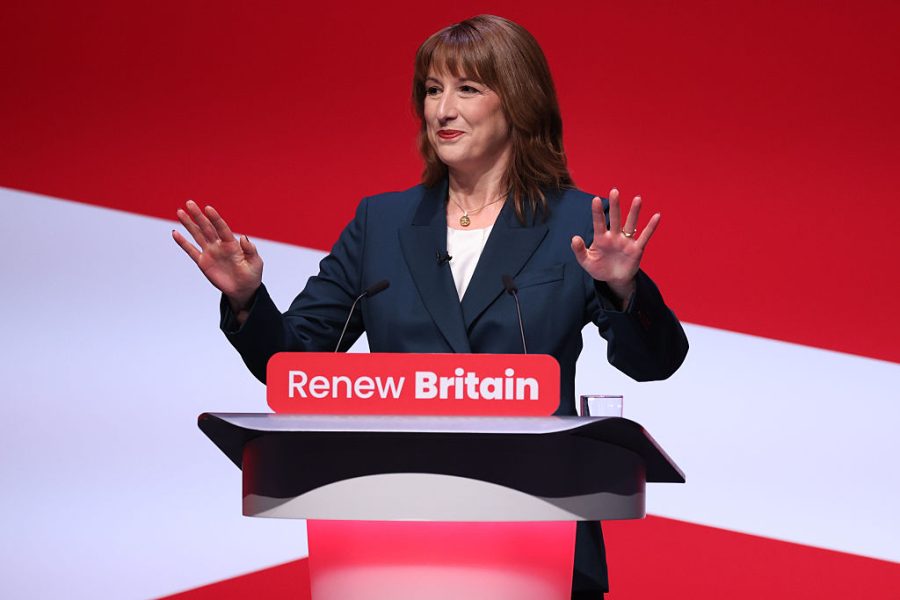The Chancellor has just finished her speech at the Labour party conference. It has been a pretty torrid 12 months since Rachel Reeves’ last appearance in Liverpool. Since then, the Budget and borrowing costs have left her precariously exposed, in both Westminster and the City. But Reeves – a Labour tribalist to her core – seemed to draw heart from the conference floor. In a solid, if unspectacular performance, her peroration contained some red meat for the party to cheer: the abolition of long-term youth unemployment, new libraries and plans for an EU youth mobility scheme. Yet it was the first half of Reeves’ speech which highlighted the ghosts of Christmas past, present and future that she must slay to win re-election in 2029.
The first was Liz Truss and the Tories. Reeves has been scathing about her fiscal inheritance over the last 14 months. Today, she tried something different. Rather than talk of the infamous £22 billion ‘black hole’ which loomed so large over last year’s conference, she instead spoke in the language of priorities.
Reeves clearly thinks that framing Reform as an expensive risk will yield dividends come 2029
‘Don’t let anybody tell you there’s no difference between a Tory government and a Labour government’, she said, repeatedly. At times, there was a risk that such attacks had shades of generals fighting the last war. In Reeves’s own words, Truss’s mini-Budget had consigned the Tories to ‘utter irrelevance’. How then could she dedicate so much of her speech to savaging yesterday’s men? Reeves resolved this by using the comparison to speak to tensions that hang over today’s conference. Rather than warn of the Tories’ plans in 2029, she referred to them in past terms to defend the choices she has made to date.
That spoke to the second target of her speech: Andy Burnham. The Mayor of Greater Manchester is very much the ghost of Christmas present at this conference. Reeves’ allies were furious at his comments last week in which he suggested that ministers were too ‘in hock to the bond markets’.
In the most politically contentious passage of her speech, Reeves chose to issue a not-so-subtle warning to those urging her to tear up her fiscal rules. ‘There are still people who peddle the idea that we can cast off restraints on spending,’ she told members. ‘They’re wrong – dangerously so.’ In moving seamlessly from talking about the past failure of the mini Budget to the present debate on borrowing costs, Reeves was linking her critics inside the party with those outside it too.
That then took us on to the third and final target of her speech: Nigel Farage and Reform UK. Having compared her choices to those of the Tories, Reeves used the same device to attack Farage’s forces. She took aim at a ‘party in bed with Vladimir Putin… who cheered on the Liz Truss mini-Budget… who wants to talk Britain down and cut us off from the rest of the world… opposed to the very principle of a health system free at the point of use.’
Much of this is par for the course: similar speeches will be made over the next two days attacking Reform’s record on the NHS and Ukraine. But what was striking about Reeves’s speech was how much she lent into the themes of security and the economy as a way of attacking Reform. For decades, these were traditionally the Tories’ areas of strength: now she clearly thinks that framing Reform as an expensive risk will yield dividends come 2029.
Hear James’s analysis on today’s Coffee House Shots podcast:







Comments